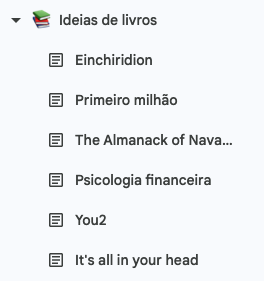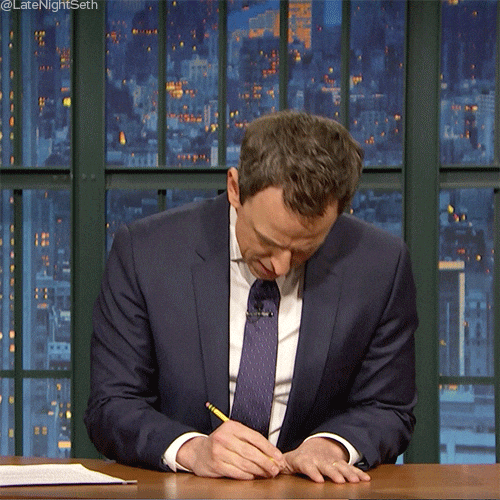Why Read Books Slow is Perfect: An simple guide to read better
Read quickly
A few years ago, a friend of mine bragged to me that he had read 24 books in a year (all self-help books). It was all the rage at the time to read and post the book.
I remember the iconic photo of him lying on a stack of books. Is it an achievement? Of course! But what’s the point of publicizing it as a merit?
When I asked him which ones he liked most and which passages from the books had the most impact on him, silence reigned in the air...
And no wonder. Try reading Socrates, Plato, Marcus Aurelius, Jane Austin and Orwell all at once, quickly and without thinking about it…
You close the book and it feels like you’ve been punched in the stomach…
Therefore, I insist on always absorbing as much as possible from each book. I don’t care how long it takes me to read it.
I care about the knowledge I will abstract from it…
Read slowly
Here, I believe, we separate those who enjoy this wonderful hobby of reading from those who are photography enthusiasts.
Photos of the Books I’m Currently Reading
Over the years, I’ve honed my reading style. I’ve tried several reading techniques. However, paced, in-depth reading is the one that has won my heart.
There are certain books that need to be read slowly. Why? There’s a lot of knowledge condensed there.
Have you ever noticed that in self-help books, the author writes a lot, and it seems like they mean the same thing? Whereas in philosophy, Plato writes a line that makes you think all week?
Why does this phenomenon occur? I’m not sure if there’s any scientific evidence to back it up. But, as sentient beings, we could write a lot more to explain it in words.
I’m not against self-help books. And I understand that they need to be written that way to sell.
But the question is: How to reach the reader by getting straight to the point?
I get this feeling every time I read a classic book. (Obviously, it depends on the writer’s style.)
So there are books that need to provide a general context before going deeper (Crime and Punishment, for example) and there are books that get straight to the point (Eichiridion, another example).
The important thing, in my view, is to be able to transmit knowledge, the idea and/or the concept.
Do you read or retain?
Yet here we are, wondering which method is best. And there’s really no right answer.
Right and wrong are subjective things, and even ambiguous; in the minds of two different people.
However, narrowing the issue down, I want to emphasize that reading for the sake of reading; and reading and retaining. These are very different things.
You’ve probably read something to distract yourself: Magazines, comics, paperbacks, etc.
He has also done technical readings and readings out of pure curiosity.
My recommendation? Create your memory palace. While reading, imagine places, things, colors, sensations, feelings, and music that connect the information you read with your memory.
This process of memorization (I say memorization, because memorizing information just for the sake of it. It doesn’t make you learn.) elevates you a lot.
Soon, this will evolve. You’ll start learning languages faster, remembering shopping lists, remembering your passwords (laughs), and even remembering holidays…
How to improve your reading
Next, I want to leave the reader with a simple technique that has done me a lot of good.
Since April, I’ve been keeping notes of what I read. This can be done in Docs, Word, notes, pen and paper, a vision board, etc. Whatever works best and is most convenient for you.
This simple exercise gets your mind to connect the dots. Consequently, it creates what I’ve called a “memory palace.” Indeed, every book you read is recorded in your memory.
It may not sound that important now, but being able to remember various passages from books is vital for you.
This practice will help you in countless areas of life, at work, in your studies, and in so many other areas. I recommend you start.
Time to practice
I know, I know. The first few won’t be good. They won’t amount to anything. But as you practice, you’ll start accumulating “compound interest of wisdom.”
Next, I challenge you to choose a classic book (Don Quixote, The Alchemist, 1984, etc.). The exercise I recommend doing is reading a paragraph, page, or chapter a day (that’s all!).
Why? So your brain has time and space to connect information. When you give your mind this time, you create a reset; then you can better capture the passages and meanings of the books.
Philosophy books are great to explore. Plato, Aristotle, and Confucius, for example. Each line will leave you thinking for days.
Each completed reading reconnects you with your soul. It enriches you from within.
(They also make you reconnect with your soul and being!)
Go out now, pick a book, set a daily goal, and give it a try.
Pro tip
To further reinforce my reading, I read on a blog that it was worth making index cards about the books I read. In addition, watch a video or review of the book.
Nothing too complex. Just listening to the other person’s perspective on the work you just read. This can help you gain a different perspective on the reading.
Join discussion groups on Reddit, Facebook or elsewhere. Tell your friends, family, and coworkers about the passages that resonated with you and why.
(This will help you even more with the memory palace.)
Keep things simple. Record what makes you feel comfortable. Use bullet points, phrases, images, photos, or whatever you feel like doing.
I guarantee this will help you memorize and retain even more information about what you’re reading. Eventually, in a conversation, when people talk about the book, you’ll remember it as if you read it yesterday.
To conclude our conversation
- Read what you like to read
- Read slowly, enjoy the text
- Establish a reading routine
- If possible, make notes of what you read.
- Watch or listen to a review
Always remember: Quantity is not synonymous with quality. I’d rather read two books a year and absorb 80% of the content than read 22 books and not remember all the names.


